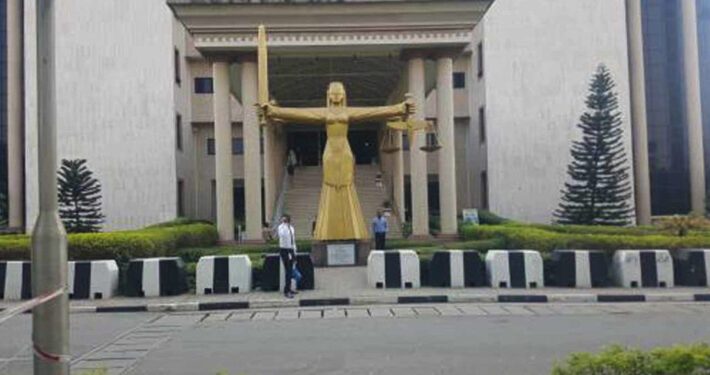The Benin Customary Court in Okada, Edo, has declared the position of odionwere (head of village) of Ikpako village in the Ovia North East LGA vacant.
The court’s ruling followed a suit instituted by the elders of Ikpako on behalf of the village, seeking a declaration that the position of Odionwere, held by James Ailegboze, be declared vacant.
In suit number ONEACC/2/2023, the claimants also urged the court to compel the defendants to account for over ₦71 million in allegedly misappropriated funds belonging to the village.
The claimants, Osamwonyi Isaac, James Ayeta, Monday Osarennotor, Clifford Osayande, John Ekhuomakhuokho, and John Obosaye, filed the suit on behalf of the village.
The defendants included Mr Ailegboze, Aghomwantiti Godspower, Samuel Igbineweka, Alfred Oteghile, and Dubri Oil Company.
According to the claimants, the elders and indigenes of Ikpako had unanimously passed a vote of no confidence in Mr Ailegboze due to allegations of sacrilege and corruption.
As a symbolic act, they laid the ukhure (traditional staff of office) flat on the floor of the oguedion (village court), signifying the traditional “death” of the odionwere.
After observing the customary three-year mourning period that follows the death of an odionwere, the claimants approached the court to formally declare the position vacant.
In his defence, Mr Ailegboze denied all allegations and urged the court to dismiss the suit.
He further requested that the claimants be compelled to restore the ukhure to its upright position at the Oguedion, in accordance with alleged directives from the Oba of Benin’s palace.
However, in a certified copy of the judgment signed by the court’s three-member panel and presided over by B.E. Imohimi, the court granted two out of the three reliefs sought by the claimants.
The other panel members were D.N. Iyalekhue and O.C. Omoregbe.
Reading the judgment, Mr Imohimi stated that the court was satisfied with the evidence and testimonies provided by the claimants’ witnesses regarding the vacancy of the odionwere position.
“An ukhure symbolises authority, much like the mace in a legislative assembly.
“Among the Benins, it signifies that the holder of the highest traditional authority is alive and functioning. When that authority ceases, such as upon death or deposition, the ukhure is laid prostrate and remains so until a new odionwere is installed,” Mr Imohimi stated.
The court recognised that acts deemed sacrilegious or corrupt could warrant the suspension or expulsion of an odionwere.
“Such suspension may include ostracism (amuomwan aburo), removal from key roles, or exclusion from oguedion leadership and decision-making.
“In view of the foregoing, we hereby declare that the indefinite suspension of the first defendant, through a vote of no confidence by members and indigenes of the Ikpako community and the laying flat of the ukhure at the oguedion, amounts to a declaration of vacancy in the odionwere position of Ikpako village,” the court ruled.
The court also ruled that the failure of the defendants to present evidence of directives from the Oba’s palace—or to provide testimony from any palace functionary—was fatal to their case.
Consequently, the court ordered that “the first to third defendants must account” for ₦7.45 million of village funds remaining unaccounted for.
The fourth defendant, Dubri Oil Company, “must henceforth remit all funds in the name of the Ikpako/Ekenwan community to First Bank account number 2027881248,” it added.
Consequently, the court invoked Benin customary law principles, saying, “Tradition abhors a vacuum as recorded in From Birth to Death (3rd Edition, p. 242), compiled by Chief Sam Igbe, the Iyase (prime minister) of Benin.
“The oldest indigene of the community automatically succeeds as odionwere after fulfilling all the required traditional rites,” the court held.
(NAN)






